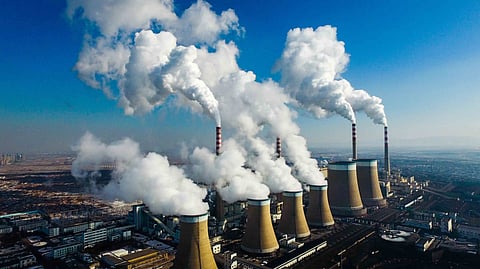Time to tackle the climate challenge is now
In the UAE, there is growing momentum to address climate change within federal and local governments, businesses and non-governmental organisations

With the Global Climate Action Summit set to begin in San Francisco today, there is a renewed focus on the role that non-state actors are playing in the fight against climate change. Though the Paris Agreement is a pact among national governments, it is clear that the effort to meet the agreement’s goals must permeate across levels of jurisdiction and engage multiple actors. Regions, cities, companies and individuals all need to act if the world has to keep global average temperature increase to 1.5 Celsius, or even 2 Celsius, above pre-industrial levels.
It is not a mere coincidence that the summit is taking place in California — an American state that has taken a progressive stance on climate change despite the Trump administration’s decision to withdraw from the Paris Agreement. Following the withdrawal, the US has seen the emergence of the ‘We Are Still In’ coalition, comprising states, investors, faith groups, universities among others. The coalition today represents “more than half of all Americans” and “$9.46 trillion in GDP,” and its contributions to climate action are proof that efforts can be stepped up even when state support is falling short.
If emissions continue unabated, it is estimated that the planet will reach the climate threshold in less than two decades. Achieving carbon neutrality by 2050 is key and emissions need to start declining steeply to get there. National commitments — submitted to the UN Framework Convention on Climate Change in the form of Nationally Determined Contributions, government finance and regulatory interventions are, of course, critical. Yet other actors must both complement, and participate in, government initiatives. Even national commitments can only be achieved with the engagement of local constituencies.
Innovative diversification
In the UAE, there is growing momentum to address climate change within federal and local governments, businesses and non-governmental organisations. Government initiatives have taken cognisance of the role of non-state actors. ‘Private Sector-Driven Innovative Diversification’ is among the three key priorities laid down in the UAE National Climate Change Plan. A number of companies are working to curb their electricity and water consumption. Heavy industries like cement have invested in more efficient and less polluting technologies.
In 2015, Dubai joined the C40 Cities Climate Leadership Group. The Abu Dhabi Global Environmental Data Initiative has undertaken extensive climate modelling and research. Emirate-level electricity and water authorities, transport and energy regulators, are investing in sustainable technologies and services. Emirates Wildlife Society — WWF has been partnering with both government entities and companies to advance climate action, foster dialogue and build awareness. Business councils, and platforms such as the Abu Dhabi Sustainability Group and Emirates Green Building Council, are enhancing local capacity.
The UAE being a largely fossil-fuel based economy with high per capita energy consumption, prudent consumption and use of renewables need to be accelerated. There is potential to do much more. The country has embraced innovation — adoption of climate solutions provides the UAE another opportunity to build a smart future.
Dr Deepti Mahajan Mittal is the Programme Leader — Climate and Energy, Emirates Wildlife Society — WWF


